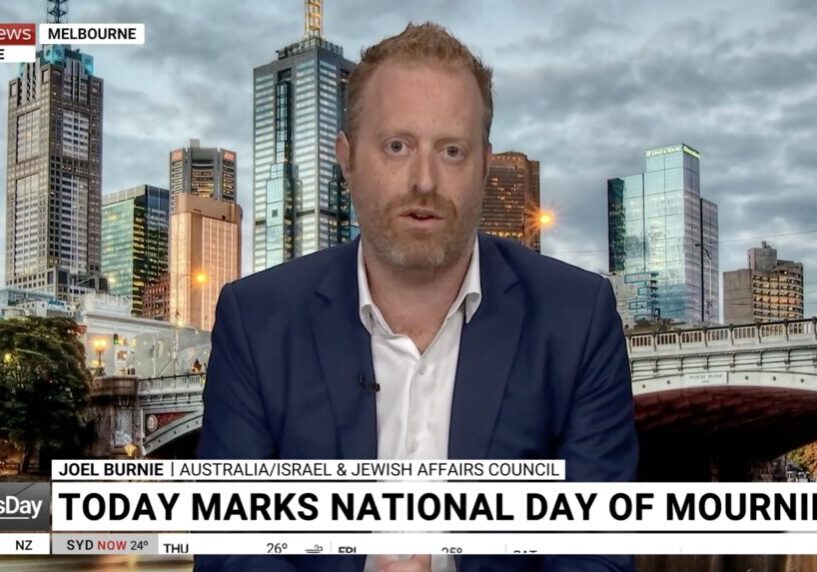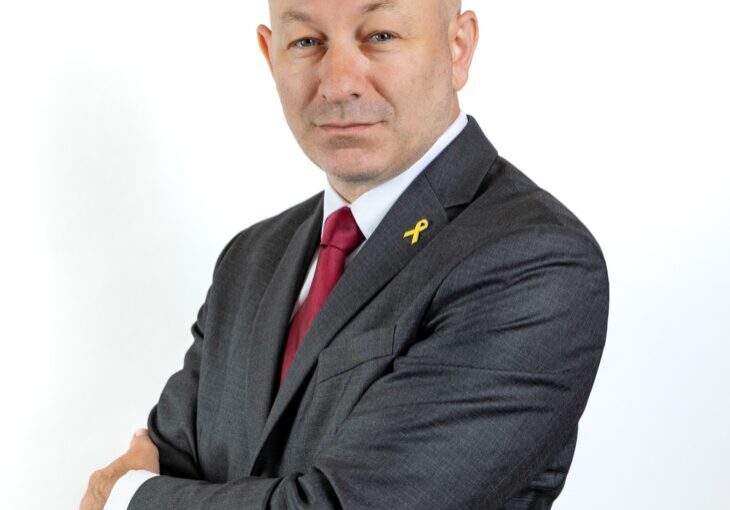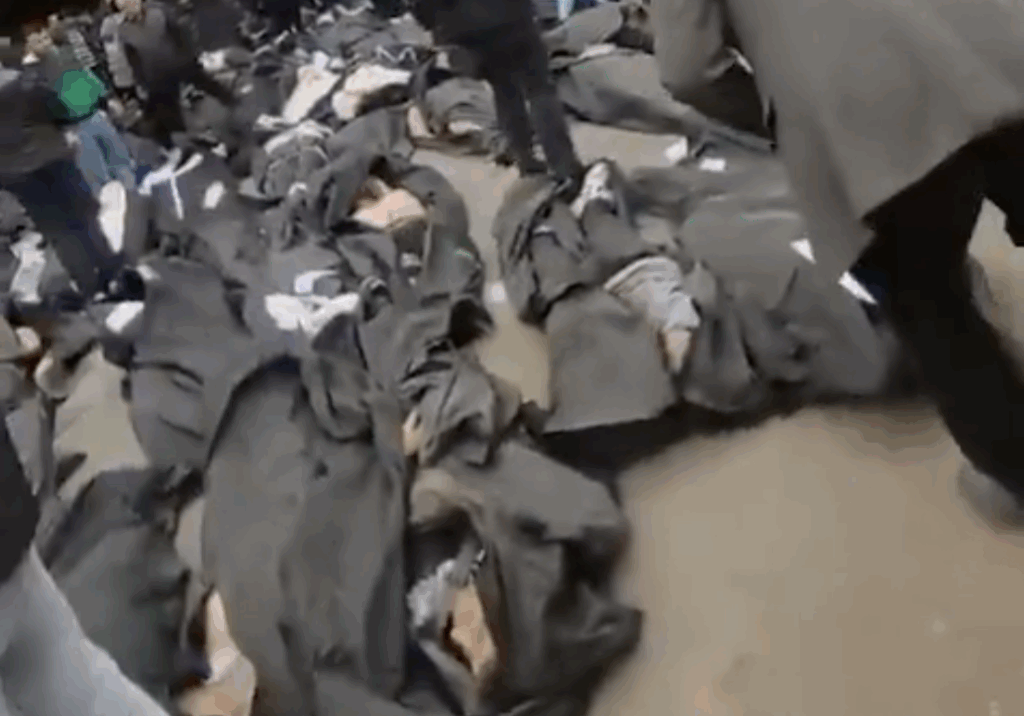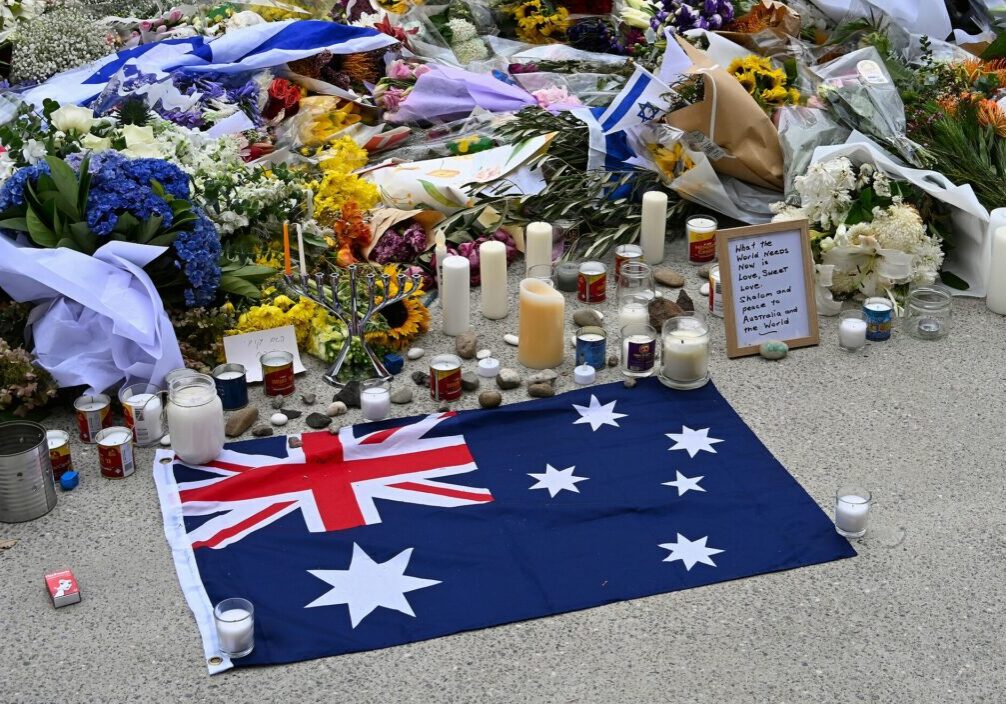Australia/Israel Review
Talking About Terrorism
Sep 25, 2009 | Allon Lee
A change of leadership in the United States, Great Britain and Australia over the last two years has seen a renewed debate about tactics in the global fight against Islamist terrorism.
There is little doubt that defeating al-Qaeda-style radical movements is still a key strategic goal in all three countries. However, with the ascension of centre-left political parties into government, debates about how best to do this have intensified, and in some cases, led to perceptible shifts.
This has been expressed principally in the important but little noticed debate that has started in all three countries over the correct official language to apply when referring to terrorists who say they act in the name of Islam.
For instance, American debate about a major linguistic and conceptual shift was sparked earlier this year when United States Homeland Security Secretary Janet Napolitano made her first address to the US Congress. In it, she failed to mention even once the word “terrorism,” instead preferring the term “man-caused disasters”.
In early July, Australia’s federal Attorney General Robert McClelland announced that his department was supporting an inquiry called the “Lexicon of Terrorism” – originating from Monash University’s Global Terrorism Research Centre in Victoria and co-sponsored by the Victoria Police Counter-Terrorism Co-ordination Unit and the Australian Multicultural Foundation.
According to the research team the aims of the project are:
- To identify the current practices of governments and their use of language within the context of the discourse on radicalisation, violent extremism and terrorism. In particular, it will examine recent shifts in policy and guidelines by governments to revise the tone, style and purpose of language with a view to assessing their efficacy.
- To make assessments of the effect of language currently being used or sanctioned by Australian governments (and their agencies) within the context of the discourse on radicalisation, violent extremism and terrorism.
- To identify alternative styles and modes of language, including possible paradigm shifts, with a view to diminishing the threat of radicalisation, violent extremism and terrorism on various levels.
- To construct a national language guidance note detailing language to be avoided, preferred language, and the context in which this should be used.
The research team have released a questionnaire for respondents to the inquiry to consider. Questions include, “the capacity of the following words or phrases, as used by Australian governments, to undermine social cohesion and harmony, or exacerbate those conditions which could lead to violent extremism”:
- Islamic terrorism
- Islamo-fascism
- Jihadists
- violent Islamic terrorism
- Islamic extremism
- moderate Muslim
- War on Terrorism
When announcing the inquiry with the imprimatur of the Australian Government, McClelland acknowledged what most experts on both sides of the counterterrorism debate agree upon: “Experience has shown that the language used to describe terrorism can be counter-productive.”
But McClelland’s concluding statement seemed possibly to foreshadow a shift which was conceptual rather than merely rhetorical. “Certain words have the potential to glorify terrorism and terrorists, while others can cause anxiety among Australians and create divisions within and between communities… We need to use language that does not inadvertently glorify terrorism but rather describes it in terms of base criminal behaviour of the most reprehensible kind. We should also be conscious of not alienating broad ethnic and religious groups by labelling them in a way that causes prejudice or leads to misunderstanding,” McClelland said.
For many counterterrorism experts, the reference to “criminal behaviour” alone is possibly seen as code for emphasising law enforcement as the key framework for understanding and meeting terrorist threats. This not only necessarily downplays the role of military, diplomatic, political and other measures in meeting terrorist threats – which come into play significantly only if the terrorist problem is identified as rooted in international conflicts and movements, rather than simply detached criminal behaviour – but also de-emphasises the role of ideology in sparking and countering terrorism.
The “Lexicon of Terrorism” inquiry also potentially raises additional concerns because of a previous Monash University and Victoria Police study that had a similar emphasis.
In October 2007, Monash University and Victoria Police released a 125-page report called “Counter-Terrorism Policing and Culturally Diverse Communities” advocating community policing as the most apposite method of combatting terrorism. Community policing is a form of policing which emphasises “community engagement” and “building of trust” with various ethnic groups, both to minimise alienation that may spark terrorism, and to provide lines of communications that will hopefully provide police with intelligence of terrorist activities before they reach an operational stage.
The report downplayed ideology as a critical variable in radicalisation, emphasising alienation and heavy-handed policing as key culprits in fomenting terrorism.
One possible implication of this approach is that authorities should avoid any language about terrorism which community representatives might object to – which suggests a possible motivation for the Lexicon of Terrorism project.
The AIR canvassed the views of various experts on the conclusions of that report in our edition of July 2008. Many of them were critical of the report’s overwhelming focus on community policing as the key method for preventing terrorism. This month, we ask various experts what the current inquiry should conclude about the “Lexicon of Terrorism”.
Concerns over language
One end of the international debate over terrorism suggests that media reports should make no reference to a terrorist’s religion, even when the terrorists themselves explicitly link their actions to religious motivations, because it might unfairly taint innocent adherents to that religion.
However, Dr. Carl Ungerer, the Australian National Security Project director at the Australian Strategic Policy Institute in Canberra, said he would be aghast if there were any move in Australia to quarantine language that might help identify and defeat violent and radical Islamists.
“I don’t think scrubbing the religious aspects are helpful at all. But there are likely to be some elements of that in this report,” he suggested.
“Clarity of language is important. The ability to be precise about the threat and its motivations. The religious aspect of the current terrorism around the world we are currently seeing is important. And those groups that use Islam for terrorism purposes have to be clearly identified [as well as] why they use it and how they use that religious motivation to recruit and train [and] cajole individuals is at the heart of the problem,” Dr. Ungerer said.
Ungerer believes that former United States President George W.Bush’s use of the term “crusade” to characterise the fight against Islamist violence was unhelpful and “some rebalancing was needed”.
“But that doesn’t mean that in responding to that sort of thing, [we] pretend that the problem doesn’t exist – the radicalisation element to it; the use of emotive religious-based language in order to radicalise newer recruits and people.
“Because if you do that, you kind of absolve Muslim communities around the world from having any responsibility in terms of dealing with problems in their communities,” he said.
Context is missing
Dr. Jonathan Spyer, a senior research fellow at the Global Research in International Affairs Centre in Israel, says the language debate in the West is often conducted in a vacuum of understanding about Islamism.
“Radical Islam and Islamic governments are wedded together. You have a process of Islamic revival and Islamic political revival which can take Shi’ite form or Sunni form,” Dr. Spyer explained.
“What we are finding is that both Shi’ite and Sunni forms of Islamic politics are finding many interesting ways to work together. The Islamic Republic of Iran promotes an ideology called ‘Resistance’ to unite Sunni and Shia and secular Arab nationalism against the West,” he said.
This rainbow coalition of radicalism often lulls naïve politicians, opinion makers and academics in the West into accepting the anti-Western rhetoric.
“It is hugely divorced from reality to ignore that there are terrorist attacks arising from a political process in which radical Islamic preachers in the Arab world are able to recruit followers to their ideology – some of whom will pursue the murder of innocent civilians,” Spyer said.
Inconvenient truths
A common concern introduced into any discussion about the Islamist threat is the potential for those seeking to radicalise and recruit Muslims to portray the West’s counter offensive as an attack on all Muslims. It is sometimes argued that to prevent this, no reference should be made to Islam when discussing terrorism by individuals claiming to be acting in the name of that faith.
However, Cliff May, President of the Foundation for the Defence of Democracies, a think-tank formed in Washington after the 9/11 attacks, is critical of this approach. He counters, “To say we are fighting a movement within Islam does not mean we are saying all Muslims are terrorists, and no intelligent person can think that anymore than when I say that Nazism was a movement that arose in Germany – that doesn’t suggest that all German speakers or all Germans were Nazis.”
“So the idea that because I am telling the truth that there are movements within Islam – al-Qaeda, the Muslim Brotherhood, the Khomeinists, Hezbollah, Hamas – that are radical and theologically motivated [and] claim the right to commit acts of terror against infidels and even Muslims based on their understanding of theology, the idea that somehow that targets all Muslims or slanders all Muslims is patently absurd. I think that most of the people who say it is know that, but think it is useful propaganda – or some are simply confused,” May said.
International terrorism expert Dr. Rohan Gunaratna, head of the International Centre for Political Violence and Terrorism Research in Singapore, does not like the term ‘Islamic terrorist’ because it does not translate well, meaning “peace be upon the terrorist”. He also supports the term Islamist to label al-Qaeda style adherents.
“The term Islamist is a phrase that has been coined and used by the Islamists themselves and therefore both Muslims and non-Muslims should feel comfortable using that term,” he said.
Gunaratna doesn’t believe Muslims are likely to see the term Islamist as an attack on Islam.
“Certainly there will be some unhappiness on the part of some Muslims when the West starts to use the term ‘Islamist terrorism’. However, if that is so, it is the responsibility of the Muslims themselves to come up with a term that identifies terrorism conducted by groups that seek to misinterpret and misrepresent Islam,” he said.
Dr. Gunaratna’s personal preference to describe the Islamist’s quest is “pseudo-Jihad”.
The terminology debate is largely occurring in the West and not the Middle East, according to Spyer.
“The term Islamism was introduced to differentiate between violent Islam and mainstream Islam. Do people in the region perceive that? Well, a lot of people in the region don’t speak English,” Spyer pointed out.
The ideology of the language debate
May sees the debate about language as an attempt to box the problem as “a criminal justice issue and not an international conflict”.
Noting that 9/11 was the spectacular culmination of a decade of Islamist violence against the US, which included the 1993 attack on the World Trade Centre, 1996 attack on the Khobar Towers in Saudi Arabia, the 1998 attack on two US embassies and the 2000 attack on the USS Cole off the coast of Yemen, May fears that a failure to win the language debate will result in a diminution of the understanding of the seriousness of the Islamist threat.
“If we go back to that model of law enforcement, of a criminal justice problem, rather than understanding that there are movements and regimes and ideologies dedicated to our destruction, we are not taking this problem sufficiently seriously enough. I am afraid we will be eventually reminded how serious this is,” May said.
Just as worrying for May is a retreat to the pre-9/11 mindset in the 1990s that ignored the al-Qaeda attacks as side issues because of what he calls “slovenly thinking”.
“Despite all these attacks most people probably thought they were living in a time of unprecedented peace and prosperity. We were spending the peace dividend by cutting intelligence [and] military spending dramatically and at most issuing subpoenas,” May recalled.
Spyer is also concerned that the US, the leader of the coalition against Islamist violence, is no longer as focused on the threat.
“Since President Obama was elected it is very difficult to have a mature discussion about that because he is surrounded by people that don’t believe that is going on,” he said.
Gunaratna classifies terrorism as a form of “war and a crime”.
“Certainly there’s a range of terminologies and some may be more appropriate in different times and countries, and settings and in responding to different types of terrorists and attacks,” Gunaratna explained.
“There is nothing wrong in using the term ‘war on terror’ but it is also a crime. No one should feel offended if anyone calls terrorism a war. Why do we use military forces in Afghanistan? Because terrorism is war. Why do we use Australian Federal Police to go after the cells in Melbourne and Sydney? Because terrorism is also a crime,” he said.
The alienation debate
Indoctrination and ideology, not alienation of vulnerable and impressionable people through language, is the prime cause of the growth of Islamism, May stressed.
“Some of the poorest and most helpless people in the world are in Africa, where I worked for a number of years, [and they] are not blowing themselves up in order to kill infidels or people who are different from them,” he said, noting that very few Islamist leaders were born into poverty.
“The root cause of this is ambition and hatred, and the desire to conquer others, which is actually a very old desire. Genghis Khan, Napoleon and Alexander the Great were not trying to address legitimate grievances. They were just trying to conquer the world. Just because we no longer think [like] that doesn’t mean it’s outdated for everybody,” May said.
According to Gunaratna, “the parent of terrorism is ideological extremism” and the ideas of the Islamists must be confronted head on and not ignored.
“Islamists are cut and paste Muslims and they take selectively passages and often misinterpret a great faith. The heritage of Islam has millions of books in history, science, medicine and literature but the Islamists are using only a dozen books to support their point of view.
“In the case of al-Qaeda and Jemaah Islamiah, it is the misinterpretation and misrepresentation of Islam that is driving a small number of Muslims to join, support, advocate and sympathise with these groups,” he said.
Actions speak louder than words
According to Dr. Ungerer, the critical role language must play in countering Islamists is for mainstream Muslim religious leaders to provide alternative definitions for concepts like jihad.
“Rather than whitewashing the language, we need to have Muslim religious leaders running a counter narrative to the likes of Abu Bakr Bashir, as happens in Singapore. So you have religious scholars who are prepared to come out and say ‘no, Bashir’s interpretation is incorrect and here’s where the reference is in the Koran’. It’s directly engaging with them and their language that I think at least the Singaporeans have thought about and I think they are doing better than others at the moment. Rather than saying the language itself is the problem.
“We have no Muslim religious leader in Australia willing to stand up and directly refute the theological bastardisation of what’s being done,” Ungerer said.
May appreciates the importance of avoiding language that unnecessarily antagonises Muslims but holds to the view that the best method to avoid radicalising Muslims is to defeat the Islamist cause.
“Osama Bin Laden is entirely correct when he says that when people see a strong horse and a weak horse they naturally prefer the strong horse.
“The vulnerable and the impressionable in the community can be dissuaded from joining this movement if they see that it is a failing movement. Generals who win battles have no difficulties in attracting recruits. Generals who lose battles do.
“That is true in all times and all places. People do not flock behind a general who is being defeated. So what you want to show is that these radical movements are literally and figuratively dead ends,” May said.
Tags: Terrorism






